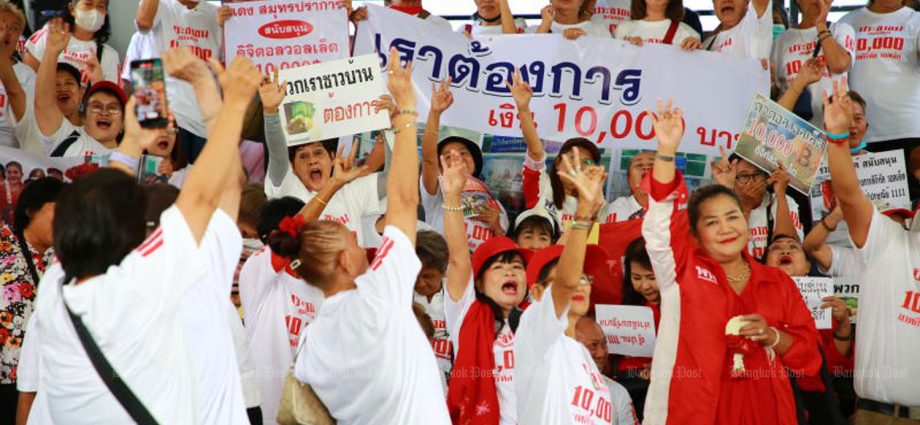NACC says cash handout scheme poses graft risks

The ruling Pheu Thai Party (PT) has brushed aside a warning issued by the National Anti-Corruption Commission (NACC) against the government’s 10,000-baht digital wallet handout scheme.
Anusorn Iamsa-ard, a Pheu Thai list-MP, said that the government is ready to listen to suggestions from all agencies.
“If the government had refused to listen, it would have already implemented the scheme. Previously, several sectors also urged it to go ahead as they suggested that the NACC’s recommendations would only delay the handout.
“But I believe the government is willing to listen to all feedback to ensure the scheme will be implemented in line with the law.
“The NACC should calm down as the scheme has not yet started. The NACC can wait until the scheme has started. It is not too late for the agency to scrutinise it. There is no need for the NACC to scrutinise it in advance,” he said.
“If the digital wallet scheme is delayed as a result of the NACC’s warnings, the agency must respond to questions from the people,” he said.
The NACC has warned the government about a range of potential pitfalls tied to the scheme, from graft to legal risks, while insisting the economy is not yet facing a crisis.
The digital wallet handout is the flagship policy of the Pheu Thai-led government to stimulate the economy, with 10,000 baht to be handed out to 50 million Thais.
The legality of the scheme has been called into question, however, as the government plans to request a 500-billion-baht loan to fund it, which goes against the party’s election campaign promise that it would not resort to taking out any loans.
On Wednesday, Niwatchai Kasemmongkol, secretary-general of the NACC, revealed the results of a panel study into the scheme that indicated it may be prone to exploitation by corrupt actors.
Mr Niwatchai said the scheme poses a risk of corruption as it could benefit certain parties, politicians or business groups. Graft could also occur during its implementation unless clear methods are mapped out to ensure all vulnerable groups benefit from it, he said.
As the economy has now started to rebound, the government should consider the financial burden the scheme will impose, and whether it is worth creating a debt burden of 500 billion baht, he said.
The NACC also warned of legal risks, including laws related to financial discipline, treasury reserves and a constitutional law mandating that the Election Commission should first inspect Pheu Thai’s campaign pledge made last May to ensure it matches the planned rollout of the scheme. If not, the promises made could be considered propaganda, he said.
He said information regarding the economy from the Bank of Thailand, the World Bank and the International Monetary Fund all suggest it has not yet reached crisis status but remains sluggish.
Sorawong Thienthong, Pheu Thai secretary-general, on Thursday dismissed claims that what Pheu Thai promised voters during the election campaign last year differed from what was announced in parliament.
“No previous governments have ever been able to deliver on 100% of campaign pledges. A government must work with all sectors. It cannot do everything on its own,” he said.
During the campaign, Pheu Thai promised to give 10,000 baht to every citizen aged 16 or older to attract voters, making 56 million people eligible for the money. However, it later laid down additional conditions that would benefit only 50 million people.
The party said in its campaigning that the scheme would be financed from the budget. It now plans to raise 500 billion baht in loans to fund the scheme.
Government spokesman Chai Wacharonke said on Thursday that the government believes the digital wallet handout scheme is necessary as it will inject a cash flow into the economy to allow low-income earners access to financial resources, and this will help the country avoid the prospects of a real economic crisis.
“Currently, commercial banks are very strict in extending loans, which results in a lack of liquidity in the system and a lack of purchasing power and deflation. Without any action taken to address the problem, Thailand may face a real economic crisis,” Mr Chai said.
Ruangkrai Leekitwattana, a member of the Palang Pracharath Party, on Thursday threatened to ask the NACC to launch a probe against the government if it insists on implementing the handout scheme, originally scheduled for May.

